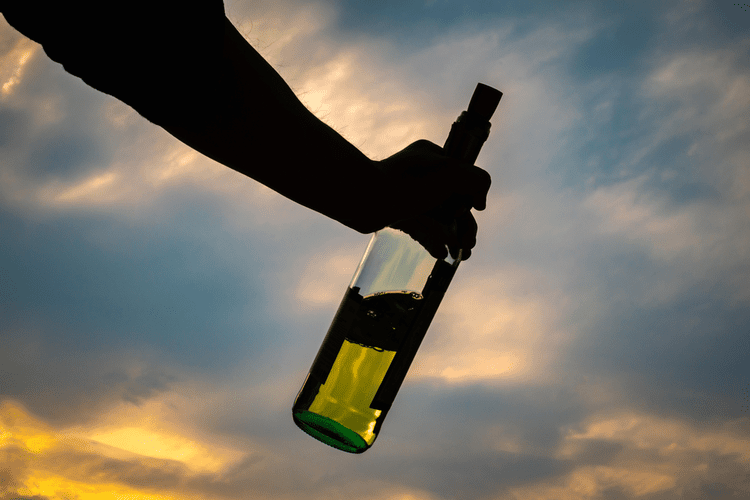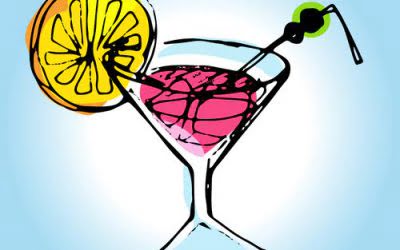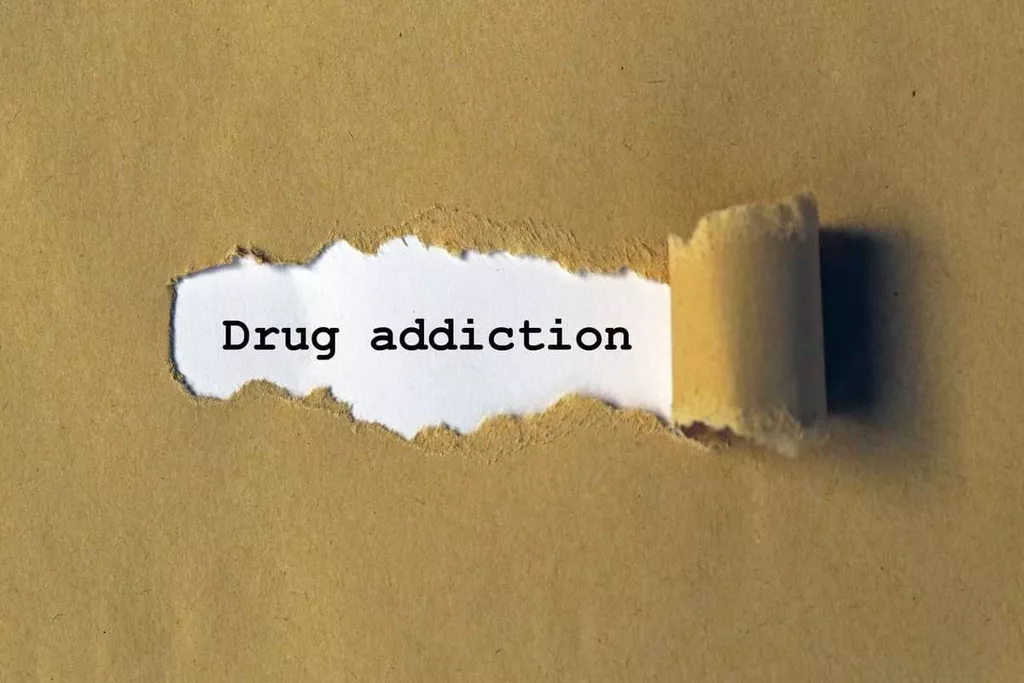Melatonin And Alcohol
- andrewmichaelfriedrichs
- November 25, 2021
- Sober Living
- 0 Comments
Contents

So “the more conservative approach,” he said, would be to steer clear of mixing melatonin with alcohol so as not to risk becoming overly sedated. Even though alcohol is a sedative that can make you feel sleepy after a few drinks, it’s known to reduce the amount of melatonin that your body can create. Alcohol can also cause some of the muscles around your airways to work differently and affect your breathing. This can make it hard to sleep if you have a breathing issue, such as sleep apnea. If you must take melatonin after consuming alcohol, wait for at least two to three hours before taking it. Know the potential risks, and don’t be afraid to consult with your doctor or pharmacist to understand it better.


Getting a good night’s rest after drinking is challenging, but it’s not impossible. You can do things both during the night and right before going to bed that will help you have a calm sleep. In a study using young adults, researchers found that alcohol “significantly decreased” the subjects’ melatonin levels. One study asked subjects to drink before bed multiple nights in a row and found that “REM density was significantly reduced on all three drinking nights.” There are many reasons why people might drink alcohol before bed.
What Happens if You Take Melatonin After Drinking Alcohol?
After taking a melatonin supplement, avoid activities that expose you to “blue light.” These activities include watching television or using a mobile device like a smartphone. This type of light can cause your body to produce less melatonin because of the brightness of these screens. As we discussed above, alcohol makes you urinate more frequently.
- There are no shortcuts in this process and through endless support, we provide intensive care on your journey to recovery.
- When you celebrate something, whether it’s a birthday, wedding, or personal achievement, alcohol is usually involved.
- In the case that you have a sleep disorder, other medications or treatments may be more effective in helping you sleep better at night.
- Overall, melatonin is considered a safe supplement when taken in the dosage range of 0.1 to 10 mg per day .
- Care/of offers a Sleep Blend formula that contains 2.5mg of melatonin combined with Ashwagandha which have both been clinically studied for their positive impact on sleep.
Even if you don’t feel the melatonin kicking in, it’s better to skip the alcohol and stay safe. Melatonin can stay in your body for several hours after you take it, and it may take a while to kick in. If you aren’t feeling any effects from your evening dose, resist the urge to reach for a drink. Contact us today to learn more about individualized recovery programs that can help you start living a healthier, alcohol-free life. Exacerbate other sleep-related conditions that can interfere with your rest, such as sleep apnea.
Tired driving is as dangerous as drunk driving, and many of us are guilty of doing it from time to time. Excessive drowsiness from lack of sleep can also negatively affect decision-making, your ability to focus, find your words, recall memories, and even make good choices about the foods you’re eating . Alcohol disrupts your sleep-wake cycle, while melatonin is meant to promote it.
Also use earplugs if you know the trash truck comes early and slams around outside, or if you have an overly excited pet that makes noises in the night. Let’s dive a little bit deeper into each of these to help you figure out where your sleep hygiene could use some tweaking. All of the information on this page has been reviewed and verified by a certified addiction professional. Contact Carolina Center for Recovery today to speak with an admissions counselor about finding the best treatment option for you. People with epilepsy can have seizures in their sleep, which can be dangerous. Learn about seizure alert and data collection devices for epilepsy.
Just be sure not to eat too much, as going to bed on a full stomach can make it difficult to fall asleep in the first place. Eating a small snack before bed can also help you sleep better. Alcohol causes your blood sugar to drop, leading to wakefulness during the night. Eating a carbohydrate-rich snack will help to raise your blood sugar and keep you asleep. Over-the-counter sleeping pills like Unisom can have similar effects when mixed with alcohol. Unisom contains the active ingredient doxylamine, which is an antihistamine.
Yes, it’s generally safe to drink the day after taking melatonin. Taking melatonin after drinking isn’t likely to cause any medical emergencies, but it can still put you in a vulnerable state. This is especially true if you take melatonin while you’re still at the bar or if you try to drive with the combined effects. Depending on how much you’ve had to drink, you should wait at least 2-3 hours before taking melatonin. If you’ve had several, it’s best to avoid taking any melatonin before bed. Keep reading to learn the truth about alcohol and melatonin safety.
In other words, if you have a couple of glasses of wine and then take melatonin before bed, there doesn’t seem to be a need to worry about dangerous side effects. However, if you find that you’re consistently struggling with sleep, removing alcohol from the mix might improve both the effectiveness of your melatonin supplement and the quality of your sleep in general. It should not be used in place of the advice of your physician or other qualified healthcare providers.
How Alcohol Negatively Affects Sleep
Having an alcoholic drink interrupts this process and can make the supplement not work as well. Alcohol can make you drowsy and even help you fall asleep faster. You may wake up early after drinking and have trouble getting back to sleep. Unsafe to mix melatonin and alcohol, especially if you’re looking to consume large amounts of either. At best, alcohol disrupts the efficacy of melatonin, making your melatonin supplement a waste of time and money. So, when taking melatonin supplements, monitor yourself and see how it affects you.

It increases levels of the neurotransmitter GABA, which promotes deep, dreamless sleep. But as alcohol levels drop during the night, your body and brain rebound and kick into overdrive. The rush of brain activity often leads to fitful tossing and turning. Peruse through the over-the-counter supplement aisle and you’ll find melatonin dosages ranging from 3mg to 6mg — and sometimes even more. For many sleep aid supplements, 3mg melatonin is pretty typical… however, it’s not the best. Melatonin can also affect you in other ways, as it’s an antioxidant.
Drinking close to bedtime is also likely to derail melatonin’s role in keeping your internal clock on track. She emphasized that the timing of your melatonin intake is critical to getting a good night’s rest. “You don’t want to take melatonin at random times,” Dr. Salas said.
Alcohol interferes with the overall effectiveness of the supplement. Both melatonin and alcohol are sedatives, so there is an increased risk of accidents or over-sedation. Melatonin is a natural hormone secreted by the pineal gland, which is sensitive to light.
The Bottom Line on Melatonin and Alcohol
Some research indicates that women may be more likely to experience nausea and vomiting from supplements due to their higher levels of estrogen, but this risk can affect anybody. If you take these supplements while drinking, the chances of vomiting — and the related risk of fatality — may increase considerably. You should know, however, that research reveals conflicting information about the relationship between supplements and alcohol toxicity. Due to the ambiguity of current data, it’s best to err on the safe side and avoid mixing supplements with alcohol unless you’ve received approval or instruction to do so from your primary care provider. The aforementioned risk of hepatoxicity cannot be overstated when it comes to mixing alcohol with supplements.
For this reason, experts agree that it is not these 5 things happen to your brain when you quit drinking as a long-term sleep aid. Learn how to heal your gut naturally with some simple diet tweaks, supplements, and lifestyle changes to start feeling better now. This has been shown in a number of studies to be effective in reducing daytime sleepiness, increasing sleep quality, improving low oxygen saturation, and reducing snoring . Adjusting your sleep schedule to better correspond with your sleep goals and personal life is hard if your bedtime routine is all over the place (or non-existent). I suggest starting the process of getting ready for bed at least an hour before your bedtime goal.
Alcohol and sleeping pills
Interestingly, though, some supplements have been shown to yield a positive effect in cases of alcoholic liver disease . According to research, certain carotenoids, Vitamin C, and Vitamin B3 may all mitigate the effects of ALD. It should be noted that these findings were not produced in human subjects, though, and you should never attempt to self-medicate with supplements without seeking professional treatment first.
Hibernate’s optimized blend of natural minerals, antioxidants, and electrolytes supplies your body with what it craves for restorative and deep sleep. A person experiencing chronic insomnia or sleep disruptions should make an appointment to see their doctor. There may be underlying causes of sleeplessness that a doctor can rule out. A healthcare professional should be consulted if chronic insomnia is experienced.
This can result in extreme drowsiness, slowed reflexes, and impaired judgment. Hypnotic sedatives like Ambien work by activating a neurotransmitter called GABA. This activation slows down your brain by triggering a decrease in neural activity. So when you mix alcohol and sleeping pills, you’re effectively doubling down on the sedative effects. Maybe you find that alcohol helps you fall asleep more easily, or you think it will improve your sleep quality.
To best understand how to get a great night’s sleep, I’ll go over what melatonin is, how to use it, potential pitfalls and side-effects, and why melatonin and alcohol aren’t the best mix. Then, I’ll share some lifestyle changes to improve your rest and sleep quality. First, if you combine alcohol and melatonin, negative side effects may occur. These can include extreme drowsiness, dizziness and increasedanxiety.
Mixing alcohol and hypnotics can have psychiatric consequences as well. People report hallucinating, sleepwalking, and committing dangerous and embarrassing actions under the influence of the two depressants. It causes you to urinate more frequently, which can interrupt your sleep by causing you to wake up several times throughout the night to use the bathroom.
Instead, swap the pre-sleep booze for some pre-sleep melatonin. Taken nightly, melatonin is a safe, natural sleep aid that can help set a firmer sleep-wake foundation for a healthier circadian rhythm and all-around healthier day-to-day decision-making. Any supplement that acts as a sedative or sleep aid — including supplements such as Valerian and melatonin — can potentially exacerbate the occurrence of these symptoms. The respiratory system is inherently unstable during sleep due to the reduction in brain activity.